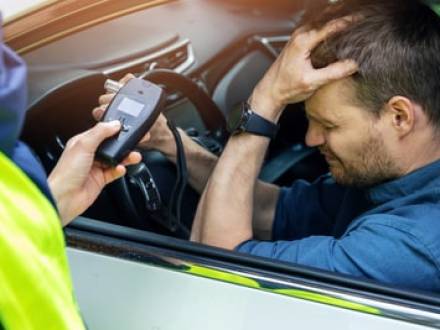Can Diabetes Adversely Affect a DUI Breathalyzer Test?
 Breathalyzer tests are commonly used as a means of proving a defendant’s blood alcohol level was over the legal limit of 0.08 percent. Although breathalyzer tests have many shortcomings, they are still considered the "gold standard" by law enforcement and are frequently used to convict people of DUI in Maryland and across the nation. Diabetics who are given a DUI breathalyzer test are at a definite disadvantage and could be unfairly convicted of DUI.
Breathalyzer tests are commonly used as a means of proving a defendant’s blood alcohol level was over the legal limit of 0.08 percent. Although breathalyzer tests have many shortcomings, they are still considered the "gold standard" by law enforcement and are frequently used to convict people of DUI in Maryland and across the nation. Diabetics who are given a DUI breathalyzer test are at a definite disadvantage and could be unfairly convicted of DUI.
If you believe your breathalyzer test was inaccurate because of your diabetes, it is essential that you have an experienced Silver Spring, MD DUI attorney from The Law Offices of Gerstenfield & Demirji, PC.. We will strongly defend you against these charges, including bringing in experts who can testify about how diabetes can adversely affect breathalyzer tests.
How Many People in the U.S. Have Diabetes?
When a person has diabetes, his or her body does not effectively use or produce sufficient insulin. Insulin is a hormone that converts food into energy. A person could be diagnosed with Type 1 or Type 2 diabetes. Type 1 diabetes is typically diagnosed in childhood and affects about 6 percent of the population.
Type 1 diabetes is much more serious, requiring regular insulin shots because the individual’s body does not produce insulin. Type 2 diabetes affects about 10 percent of the population. Those with Type 2 diabetes do not produce enough insulin, or the cells in their bodies ignore the insulin produced.
How Could Diabetes Affect a Breathalyzer Test?
Individuals with Type 1 diabetes often experience diabetic ketoacidosis. This causes the individual’s breath to smell "fruity" and can result in a police officer mistaking this smell for alcohol. When the liver breaks down fat, it produces toxic byproducts known as ketones. Ketones are excreted in the urine and the breath, but in diabetics, the liver produces too many ketones for the body to eliminate, leading to ketoacidosis.
Acetone is also produced in diabetics when their glucose levels are high. Elevated glucose levels seen in diabetics can result in a false positive reading on a breathalyzer when acetone is mistakenly read as levels of ethanol or alcohol. Depending on how high or low the glucose levels are, a diabetic can test over the legal limit when he or she has had no alcohol at all.
How Diabetes Symptoms Can Be Confused with Symptoms of Impairment
Symptoms of hypoglycemia and diabetes can include:
- Shakiness
- Sweating
- Anxiety
- Nervousness
- Jerky movements
- Slurred speech
- Drowsiness
- Decreased coordination
- Confusion
- Sluggishness
- Excessive thirst or dry mouth
- A flushed face
Many of these symptoms are often seen in those who are alcohol-impaired. Individuals with diabetes who have recently eaten foods that increased blood glucose levels or who have not eaten recently, those with hypoglycemia, or Type 1 diabetics who are late on their insulin shot could all be mistakenly identified as being drunk by law enforcement. Field sobriety tests could indicate a person is inebriated when his or her body is only reacting to the illness of diabetes.
Information Your Attorney Will Need to Build a Defense on Your Behalf
If your diabetes resulted in a falsely high BAC reading, your attorney would need to know the type of diabetes you have, when you were diagnosed, details of your eating habits, when your last insulin injection was prior to being stopped, and when and what you ate before being pulled over. If you have blood glucose testing records, perhaps from a CGM monitor, these could prove to be extremely helpful in your defense.
Contact a Montgomery County, MD DUI Lawyer
Being charged with DUI is difficult under any circumstances, but if you believe your diabetes resulted in a false breathalyzer reading, it can be even more frustrating. Having a strong legal advocate by your side who understands the importance of having the jury understand how diabetes can impact breathalyzer tests can be vital to a successful outcome.
A Silver Spring DUI attorney from The Law Offices of Gerstenfield & Demirji, PC. is ready to take your case. We are available 24/7, treat our clients with compassion, have good relationships with prosecutors, and are aggressive when warranted. Call 301-589-9500 to schedule your free consultation. We speak fluent Arabic and Spanish.














